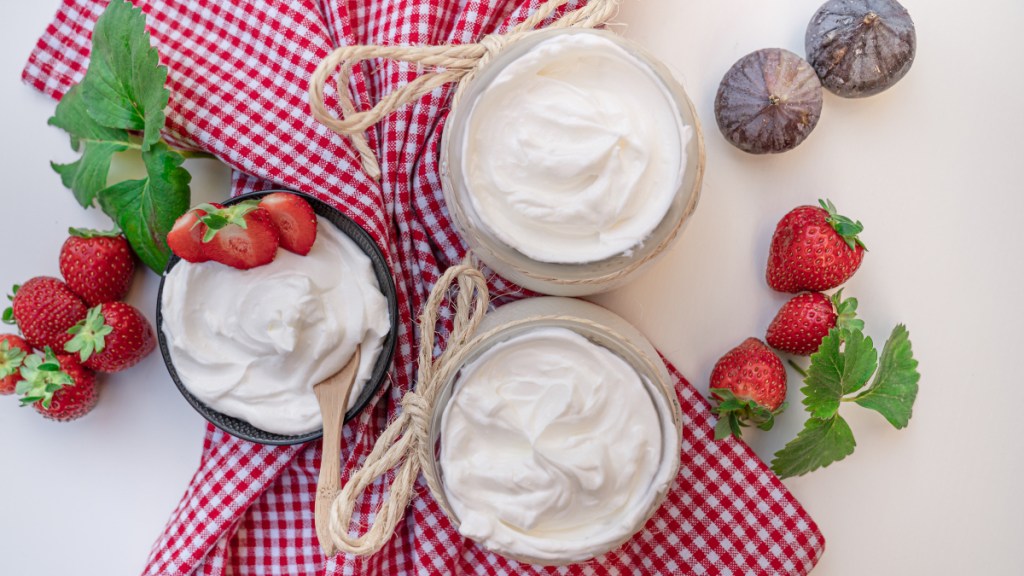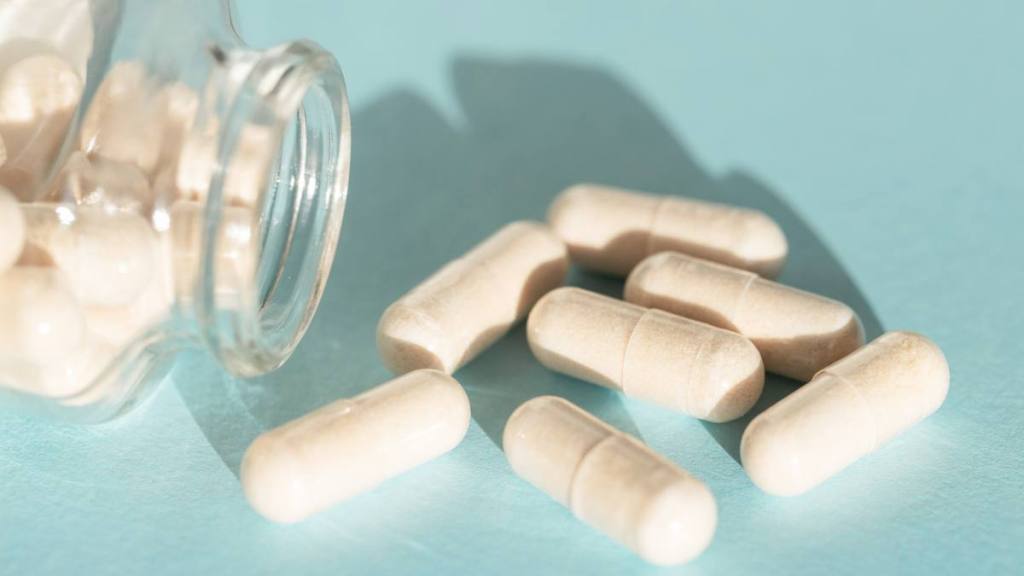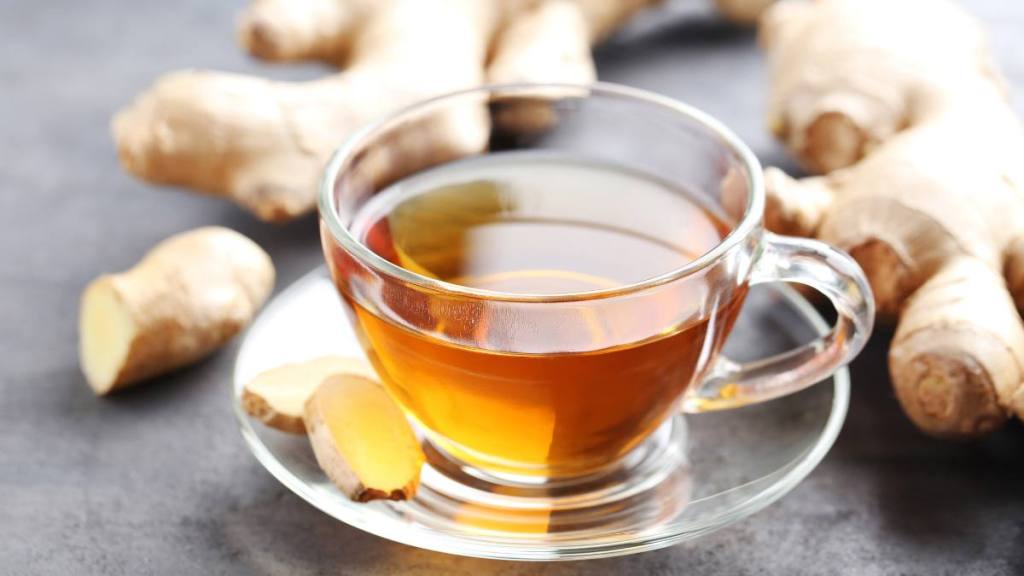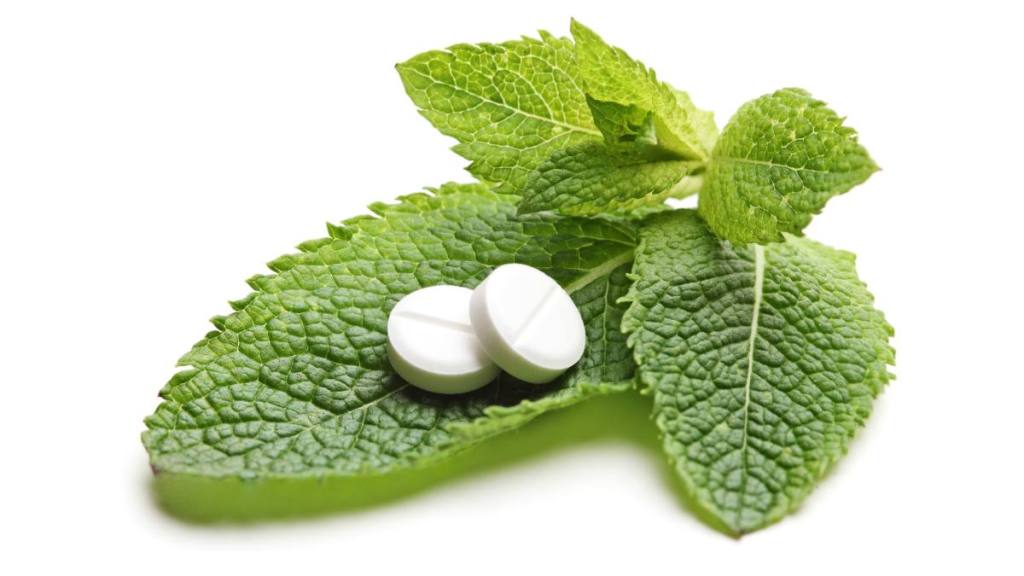Do Probiotics Help With Bloating? Docs Say Yes — If You Choose the Right Ones
Plus three more natural ways to ease bloating, including an "I Love U" massage

That full, sluggish, pants-too-tight feeling that comes when you’re bloated can put a damper on your whole day. So, if you’re often plagued by a puffed-out belly, you might be wondering: Do probiotics help with bloating?
“Bloating is one of the most common issues I hear about,” says Haleh Pazwash, MD, a gastroenterologist at Gastroenterology Associates of New Jersey and Chair of the Division of Gastroenterology at Valley Hospital in Ridgewood, NJ. It happens when excess gas builds up in your stomach, which can stem from a range of causes like eating too much of certain foods, constipation or even hormonal swings. “Menopause is a big time when we see patients who are more prone to bloating,” she adds.
The good news: A probiotic supplement might help you win the battle of the bloat. Here’s what you need to know about using probiotics to help with bloating, plus other natural bloat busters to try.
All about probiotics and where to find them
Probiotics are beneficial bacteria that live in your GI tract. They coexist in balance with strains of bad bacteria to form your microbiome, the collection of trillions of microbes that control the health of your gut.
One of the jobs of probiotics is to help with digestion, breaking down food into smaller components that your body can use for energy. “In theory, that assistance with digestion will help you with gas, bloating, constipation or diarrhea,” Dr. Pazwash says.
Probiotics occur naturally in certain foods like yogurt and kefir (a yogurt-like drink), says Amanda Sauceda, RD, founder of The Mindful Gut. You might find them in other fermented foods, too, including some cheeses, sauerkraut, kombucha, miso, pickles and raw unfiltered apple cider vinegar. (These foods contain live bacteria; experts just can’t say for sure whether the bacteria have proven probiotic benefits.) They may be a better source of probiotics than supplements, since supplements can vary in quality and haven’t yet been proven help with bloating (more on that in a bit).

You can also help the probiotics in your gut flourish by eating foods rich in prebiotics, or fibers that serve as nutrition for probiotic bacteria, Dr. Pazwash points out. You’ll find prebiotics in foods like whole grains, bananas, leafy greens, onions, garlic, soybeans and artichokes. (See the 10 best foods for gut health.)
Do probiotics help with bloating?
When it comes to probiotics in supplement form, depending on which kind you take and what’s causing your bloating, they could help you de-puff. “Probiotic supplements can help with bloating — but it’s not as straightforward as it seems,” says Dr. Pazwash.
Most of the research looking at probiotic supplements for bloating has been done in people with irritable bowel syndrome (IBS), a chronic GI disorder that can cause bloating, gas, diarrhea and constipation. A review of 24 studies in Gastroenterology found that certain probiotic strains, such as Lactobacillus, Bifidobacterium or Saccharomyces, could be helpful for easing symptoms of IBS, including abdominal pain and bloating. (Click through to learn the difference between IBD vs IBS — plus how to get relief.)
Probiotics can also give you some relief if your GI symptoms stem from trouble getting things moving. “People often get bloated because they’re constipated, and there do seem to be some uses of probiotics helping with constipation,” Sauceda says.
That said, experts at the American Gastroenterological Association don’t currently recommend probiotic supplements to manage bloating simply because there’s not enough evidence to show that they actually work. However, they’re generally considered safe, so there’s likely little harm in giving them a try. Just check with your doctor first, recommend both Dr. Pazwash and Sauceda.

Probiotics for bloating: What to know
Even though experts can’t yet say for sure that probiotics will help with bloating, there’s generally no big downside to giving them a try, Dr. Pazwash says. But since different people respond differently to different strains of bacteria, it’s possible that a supplement might make you gassy or more bloated. “Just because it’s good bacteria doesn’t necessarily mean it will be helpful for your balance of gut bacteria,” she explains.
You should start to see an improvement in your GI symptoms like less bloating within 3 to 5 days if a probiotic supplement is a good fit for you, Dr. Pazwash says. But if you take one and it’s not helping — or it’s making your bloating worse — there’s no harm in experimenting with another supplement. “Each probiotic supplement contains different bacterial strains at different amounts, so you could try another one to see if that works for you,” she adds.
The best supplements for bloating
If you opt to supplement, look for a brand containing bacterial strains like Lactobacillus, Bifidobacteriun or Saccharomyces, Dr. Pazwash recommends. These are the probiotics that are backed by the most research to help ease symptoms like bloating and constipation.
Her favorite OTC supplement option? Align Probiotic Digestive Support (Buy from Amazon, $44.64). “It’s my #1 for gas and bloating,” Dr. Pazwash says. “It’s one of our favorites. A lot of my patients say it helps with diarrhea, too.” Culturelle Pro Strength Digestive Daily Probiotic (Buy from Amazon, $31.49) and Florastor Daily Probiotic Supplement (Buy from Amazon, $44.51) are two more go-to picks she’ll often recommend to patients struggling with bloating.
As for dosing, it’s best to follow the instructions on your supplement label. “Each supplement has a different amount of probiotics. Some are formulated for once a day, others say to take them more often,” says Dr. Pazwash.
3 more ways to ease bloating
Probiotics aren’t the only way to help get stubborn bloating under control. Some more tried-and-true home remedies:
1. Sip ginger tea
Ginger’s a proven bloat buster, thanks to compounds like gingerol. How does it work? It eases pressure in your lower esophageal sphincter (the tube connecting your esophagus and stomach) to reduce gas buildup in your gut, found a study in Food Science & Nutrition. “Ginger tea can be really helpful after eating for digestion,” Sauceda says. “I like to sip on that and take a walk after eating to get things moving.” (Making ginger tea from scratch? Learn how to store ginger so it stays fresh longer.)

2. Try an “I Love U” massage
You can also release trapped, bloat-causing gas with what’s known as an “I Love U” or ILU massage, Sauceda says. The massage movements follow the path of the large intestine, encouraging the contents inside to move along a little quicker. Here’s how to do it:
- Starting on the upper left side of your abdomen, apply gentle pressure with your pointer finger to draw the letter “I” from your left ribcage down to your left hipbone. Repeat this 10 times.
- Starting at your right ribcage, use your pointer finger to write the letter “L,” ending at your left hipbone. Repeat this 10 times.
- Finally, use your pointer finger to write an upside-down “U.” Start at your right hipbone, move up to your right ribcage, move across to your left ribcage, and move down to your left hipbone. Repeat this 10 times.
Check out the short video below for a visual guide:
3. Consider peppermint oil
Peppermint oil supplements are Dr. Pazwash’s go-to for occasional bloating and cramping. Similar to ginger, it relaxes the muscles in the GI tract to help release pent-up gas that can make you bloated. One to try: NOW Foods Peppermint Gels (Buy from Swanson, $12.99). “Follow the dosing instructions on the label, since different brands may contain different amounts,” she says.

For more ways probiotics can improve your health:
13 Best Probiotics for Seniors to Improve Digestive Health
This content is not a substitute for professional medical advice or diagnosis. Always consult your physician before pursuing any treatment plan.


















